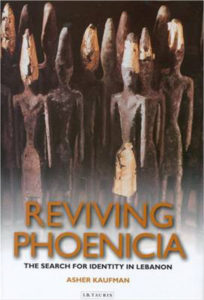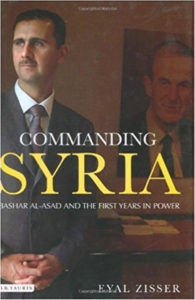

The Triumph of Military Zionism: Nationalism and the Origins of the Israeli Right
Colin Shindler
I.B.Tauris & Co Ltd (2009)
Rs7,298
Why did Israel shift from a state based on pioneering egalitarianism and “making the desert bloom” to one which is chiefly known for its military might - as dramatically demonstrated most recently in Gaza? The Triumph of Military Zionism examines Israel’s shift to the right at the hands of Menachem Begin, the supposed “disciple” of Vladimir Jabotinsky.
In this new and revised edition of his definitive history of the subject Colin Shindler uses original research to challenge the conventional wisdom that Begin was the natural heir to Jabotinsky. Drawing on hitherto unpublished sources he demonstrates how Israel drifted away from Jabotinsky’s ideas towards a maximalist Zionism because Begin’s very selective interpretation of his mentor’s words did not reflect Jabotinsky’s intentions. This invaluable addition to the study of Israel’s political history will appeal to both Middle Eastern and military historians, as well as anyone with an interest in the defining conflict of the current and, undoubtedly, future generations.
Colin Shindler is a Fellow in Israeli Studies at the School of Oriental and African Studies (SOAS), University of London. He was formerly the editor of the Jewish Quarterly and Judaism Today. He is author of Land Beyond Promise and Ploughshares into Swords (both I.B.Tauris).

Pivot of the Universe: Nasir al-Din Shah and the Iranian Monarchy, 1831-1896
Abbas Amanat
I.B.Tauris & Co Ltd (1997)
Rs4,532
When he was assassinated in 1896, Nasir al-Din Shah had occupied the Peacock throne for nearly half a century. A colorful, complex figure, he is frequently portrayed as indolent and indulgent. Yet he was in many ways an effective ruler who displayed remarkable resilience in the face of dilemmas and vulnerabilities shared by most monarchs of the Islamic world in the nineteenth century.
The Pivot of the Universe is the first biography of this fascinating monarch. In it Amanat traces Nasir al-Din Shah’s transformation from an insecure crown prince, and later an erratic boy-king, to a ruler with substantial control over his government and foreign policy. He provides a vivid picture of the political culture that determined Nasir al-Din Shah’s behavior and, ultimately, his conception of government: the mode of succession in an urbanizing nomadic dynasty, the complicated relationships of the harem and his family, and the fatherly role of his guardian-ministers.
Based on extensive research into public and private papers, illustrated with drawings and photographs from the period, this book offers a fresh interpretation both of the significance of Nasir al-Din Shah and the way in which the Iranian monarchy, the centerpiece of an ancient political order, withstood and adjusted to the challenges of modern times.
Abbas Amanat is Professor of History at Yale University. He is the author of Resurrection and Renewal: The Making of the Babi Movement in Iran, 1844-1850 (1989) and the editor of Crowning Anguish: Memoirs of a Persian Princess from the Harem to Modernity, 1884-1914 (1993).

Reviving Phoenicia: The Search for Identity in Lebanon
Asher Kaufman
I.B.Tauris & Co Ltd (2014)
Rs6,914
This study follows the social, intellectual and political development of the Phoenician myth of origin in Lebanon from the middle of the 19th century to the end of the 20th. Asher Kaufman demonstrates the role played by the lay, liberal Syrian-Lebanese who resided in Beirut, Alexandria and America towards the end of the 19th century in the birth and dissemination of this myth. Kaufman investigates the crucial place Phoenicianism occupied in the formation of Greater Lebanon in 1920. He also explores the way the Jesuit Order and the French authorities propagated this myth during the mandate years. The book also analyses literary writings of different Lebanese who advocated this myth, and of others who opposed it. Finally, the text provides an overview of Phoenicianism from Independence in 1943 to the present, demonstrating that despite the general objection to this myth, some aspects of it entered mainstream Lebanese national narratives. Kaufman’s works should be of use to anyone interested in the birth of modern Lebanon as we know it today.
Asher Kaufman teaches at the University of Notre Dame and is a research fellow at the Harry S. Truman Research Institute for the Advancement of Peace.

Commanding Syria: Basher Al-Asad and the First Years in Power
Eyal Zisser
I.B.Tauris & Co Ltd (2006)
Rs6,914
When Basher al-Asad became President of Syria in June 2000, he had a tough act to follow. A quiet, unassuming ophthalmologist, trained in Britain, young Asad was successor to his dynamic, wily father Hafiz, who had consolidated power in his ethnically diverse and politically restive state through personal charisma, brute force and political balancing acts. Now, some years after Basher’s succession and with mounting international pressure for political and economical reform, his handling of the issues facing Syria raises serious questions for the future stability of the Middle East. This is the first major work on Basher al-Asad. It assesses the durability of Hafiz’s legacy, including the influence of the old power-brokers, the effectiveness of Basher’s attempts to move away from his father’s shadow, and prospects for reform. Above all, it evaluates Basher’s continuing hold on power following Syria’s humiliating retreat from Lebanon in Spring 2005.
Eyal Zisser is Senior Lecturer in the Department of Middle East and African Studies and Research Fellow at the Moshe Dayan Center at Tel Aviv University. He is the author of Lebanon: The Challenge of Independence (I.B.Tauris, 2000).

Flood Planning: The Politics of Water Security
Jeroen Warner
I.B.Tauris & Co Ltd. (2011), Rs8,067
Floods are amongst the most common and devastating natural disasters. In the wake of such an event, the pressure to initiate flood protection schemes that will provide security is enormous, and politicians promise quick solutions in the national interest. Jeroen Warner examines a number of such projects from around the world - the Middle East, South Asia and Western Europe - aimed at the prevention of serious flooding. Each provoked a level of controversy unforeseen by its initiators, with the result that schemes were shelved, were not completed, or simply failed. The author shows how such projects inevitably become politicized as different stakeholders seek to promote their interests.
Jeroen Warner is Assistant Professor of Disaster Studies at Wageningen University in the Netherlands. He has written extensively on the politics of water and is editor of ‘Multi-Stakeholder Platforms for Integrated Catchment Management’ and co-editor of ‘The Politics of Water’.

Iraq Ablaze: Inside the Insurgency
Zaki Chehab
I.B.Tauris & Co Ltd (2005)
Rs1,295
Zaki Chehab is one of the Arab world’s leading journalists. He is political editor of the London-based “Al Hayat” and of the Arabic TV channel LBC. For over 25 years he has covered Middle Eastern conflicts for local and Western media, and has contributed to the “Guardian”, CNN, Channel 4 and the BBC. He was the first journalist to broadcast interviews with the Iraqi resistance. Very few observers are able to travel outside the American controlled Green Zone in Iraq, let alone meet members of the resistance. Internationally renowned Arab journalist Zaki Chehab, however, is different. Having grown up in a refugee camp in Lebanon, he knows how to talk the language of people who consider themselves under foreign occupation. As a result, he is able to penetrate the inner structures of Saddam loyalists and Islamist radicals as well as reach out to ordinary people struggling to get by. Now, for the first time, we are able to see an authoritative picture of the Iraqi insurgency in all its complexity, ferocity, and passion. Chehab shows how the resistance fighters really view the post-Saddam regime, George W. Bush and the terrorist phenomenon now known as ‘Al-Qaeda’.
As well-connected in diplomatic circles as he is amongst the footsoldiers of Fallujah, he also reveals facets of the occupiers’ strategy never discussed in the West. “Iraq Ablaze” is the book that everyone who wants to understand Iraq today, and where it is heading, has been waiting for.
Zaki Chehab is one of the Arab world’s leading journalists. He has reported from the Middle East for local and Western media for 25 years, and is a regular commentator on Middle East issues for BBC, Channel 4 News, CNN and Sky. He is London Bureau Chief of the Arabic newspaper Al Hayat, and is author of ‘Iraq Ablaze: Inside the Insurgency (I.B. Tauris, 2006)

